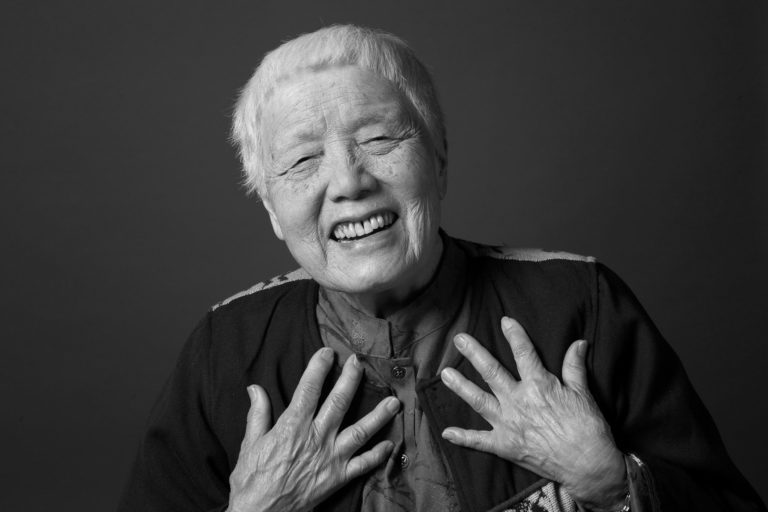Chinese-American philosopher and civil rights legend Grace Lee Boggs turned 100 this summer. She has been at the heart and soul of a largely hidden story inside Detroit’s evolution from economic collapse to rebirth. We traveled in 2011 to meet her and her community of joyful, passionate people reimagining work, food, and the very meaning of humanity. They have lessons for us all.
Political Values
Featured Items
Ta-Nehisi Coates says we must love our country the way we love our friends — and not spare the hard truths. “Can you get to a place where citizens are encouraged to see themselves critically, where they’re encouraged to see their history critically?” he asks. Coates is a poetic journalist and a defining voice of our times. He’s with us in a conversation that is joyful, hard, kind, soaring, and down-to-earth all at once. He spoke with Krista as part of the 2017 Chicago Humanities Festival.
View
- List View
- Standard View
- Grid View
44 Results
Filters
August 18, 2011
Richard Mouw
Restoring Political Civility: An Evangelical View
Richard Mouw challenges his fellow conservative Christians to civility in public discourse. He offers historical as well as spiritual perspective on American Evangelicals’ navigation of disagreement, fear, and truth.
One of the world’s leading experts on torture, Iranian-American political scientist Darius Rejali discusses, in particular, how democracies change torture and are changed by it. In the wake of Wikileaks revelations about torture in U.S.-occupied Iraq, we explore how his knowledge might deepen our public discourse about such practices — and inform our collective reckoning with consequences yet to unfold.
October 20, 2016
David Brooks + E.J. Dionne
Obama's Theologian: Reinhold Niebuhr and the American Present
President Obama has cited Reinhold Niebuhr’s teachings as significant in shaping his ideas about politics and governance. In a public conversation, we discuss the great public theologian’s legacy and ideas — and what influence they may play in the future of American politics.
Americans remain divided about how much religion they want in their political life. As we elect a new president, we return to an evocative, relevant conversation from earlier this year with journalist Steven Waldman. From his unusual study of the American founders, he understands why 21st-century struggles over religion in the public square spur passionate disagreement and entanglement with politics at its most impure.
October 9, 2008
Rod Dreher
The Faith Life of the Party: Part II, The Right
The second part of our examination of religious energies below the surface of the 2008 presidential campaign. Conservative columnist Rod Dreher is an outspoken critic of mainstream Republican economic and environmental ideas and the conduct of the Iraq war, but he voted for George W. Bush twice. We explore the little-known story of religiously influenced impulses within the conservative movement that diverge from the Religious Right.
October 2, 2008
Amy Sullivan
The Faith Life of the Party: Part I, The Left
The Religious Right has gotten a fair amount of coverage in recent years, while the political Left has rarely been represented with a religious sensibility. Our guest, a national correspondent for Time magazine is a political liberal and an Evangelical Christian who has been observing the Democratic Party’s complex relationship with faith and the little-told story of its response to the rise of the Religious Right.
September 14, 2006
John Danforth
Conservative Politics and Moderate Religion
Politics driven by a religious agenda, Danforth says, is true neither to his understanding of Christian faith nor to the traditional values of the Republican party. This veteran politician speaks about the values that have helped him navigate the line between private faith and public life and his current concerns about religion in his own party and in the world.
The theory of the “God gap” — often broadly suggesting that religious Americans are conservative and will vote Republican while non-religious Americans are liberal and will vote Democratic — has been prominent in press reporting and political maneuvering in the 2004 presidential race. At their recent conventions, both parties seemed to grapple with faith dynamics and respond to the perceived God gap in interesting, unexpected ways.
Krista speaks with Steven Waldman, who covered the 2004 Democratic and Republican conventions for religious messages, images, and language. He says that, strictly speaking, the God gap is a myth. We’ll look beyond the headlines about the political gulf that reportedly separates religious and secular Americans.
The Pause
Join our constellation of listening and living.
The Pause is a monthly Saturday morning companion to all things On Being, with heads-up on new episodes, special offerings, event invitations, recommendations, and reflections from Krista all year round.
Search results for “”
View
- List View
- Standard View
- Grid View
Filters
